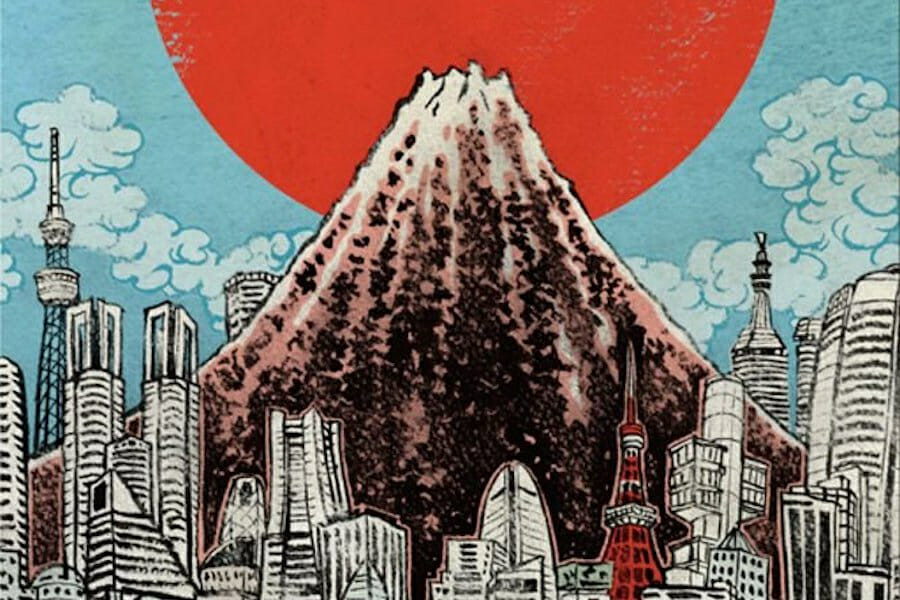
Books
Panel Discussion: ‘Reimagining Japan: The Quest for a Future That Works’
Re-Imagining Japan: the Quest for a Future that Works, a panel discussion on the future of post-quake Japan with panelists, Gerald Curtis, Christopher Graves and David Sanger and moderator, Rik Kirkland, convened at Japan Society on Thursday, Sept. 8, 2011. The speakers sought to address the state of affairs in Tohoku, Japan, and in particular to make recommendations for Japan’s future.
They commented on John Dower’s description of the “myth of change resistant Japan” and recommended that now is the time for bold drastic political, economic and social change, especially at the local level so that those who are really in the middle of the crisis like the mayors of Tohoku can move quickly and effectively. In so doing, perhaps an effort towards radical entrepreneurship could take place.
In particular, they touched upon the need for addressing immigration and creating incentives to encourage young people to come back to the affected areas, especially the fisheries. In general, the speakers were not optimistic that their recommendations would be implemented. They remarked that the people of Tohoku had made a very un-Japanese remark that “the earthquake should have hit Tokyo!” – then perhaps the rest of the country would understand the extent of the devastation and the need for political reform to effect positive change in disaster hit areas.
Rik Kirkland, Senior Managing Editor, McKinsey & Co., introduced the three speakers, as contributors to a book of 80 essays commissioned by McKinsey & Co., on the subject, Re-Imagining Japan.
David Sanger, Chief Washington Correspondent of the New York Times said that the constant political flux in Japan meant that it would certainly be time for re-imagining. Japan because they had just elected another new Prime Minister.
Gerald Curtis, Burgess Professor of Political Science at Columbia University and Director of the Japan Society and David Sanger said that they felt that the Tohoku Earthquake had brought about a positive shift in Japan’s position vis-à-vis the rest of the world. The earthquake had shifted international focus once again to Japan and had encouraged a new level of sympathy and understanding for the Japanese people. The behavior of Japanese in crisis–dignified, hard working, stoic, disciplined- has showed the world the best of the Japanese national character.
Christopher Graves, Global CEO of Ogilvy Public Relations Worldwide, David Sanger and Gerald Curtis argued that the earthquake should provide the opportunity for dramatic changes to the entire political and social process that would effectively change the manner which disasters could be addressed.
They argued that despite the traditional identification of Japan as a country that does not change, such change was indeed possible. The speakers urged the audience to read John Dower’s essay “The Myth of Change-Resistant Japan” in Re-Imagining Japan. Dower pointed out that massive change was wrought by the creation of the railroads in Japan in the nineteenth century. He noted the unprecedented post WWII- rise of democracy in Japan, which no one would have predicted. This disaster in Tohoku, similarly, could be a chance for radical change– a chance for vibrant entrepreneurship. Some bold decisions need to be implemented. Tohoku is Japan’s Maine. Its economy centers on fishing and the fishing industry was at the center of the disaster zone.
But adequate manpower is lacking. Tohoku also has the highest percentage of elderly people. Young people have fled the area in droves. Encouraging an influx of able young people to Tohoku is critical. Gerald Curtis said that putting this process into practice would be difficult. He said that Japanese people from outside Tohoku fail to understand the magnitude of the crisis.
In fact, as the panelists would argue, Tohoku’s mayors understand the magnitude of the crisis, and what is critical now is to give them the power and authority to do what is necessary. The panelists argued, however, that they were not very optimistic that this degree of political change could be brought about. Tohoku residents have said under hushed breaths, “the earthquake should have hit Tokyo.” Christopher Graves remarked that Japan might be due for another paradigm shift. He urged the audience to consider international tourism, a huge potential revenue source that Japan desperately needs. He described the process of branding which led to the effort Cool Japan.
Cool Japan was a serious attempt to understand how well those brilliant Japanese products/exports manga and anime were doing and whether marketing lessons could be found there for other Japanese products. Cosplay Conventions (“costume play” built upon manga and anime prototypes, a type of performance art) are held all over the world, bringing in thousands of tourist dollars.
Optimistic predictions were that Japan could do a $200 million business by 2020 promoting Cosplay. But sadly the predictors found that the cosplay revenues did not return to Japan and there was powerful competition for similar products elsewhere – Taiwan and Korea are doing their own version of manga and anime very successfully. Christopher Graves said that a better idea for the promotion of Japan would be Creative Tourism. American baby boomers, a major component of international tourism, yearn for the experience of learning something and mastering it. In Japan the concept of mastery – of traditional arts and culture – reins supreme. Tea ceremonies, flower arranging, martial arts. That would be good branding for Japan!
Rik Kirkland asked the speakers to make specific recommendations for change to deal with the aftermath of the disasters and to rebuild for the future.
The Recommendations of Curtis, Graves and Sanger
To make Tohoku flourish again, the young people must return. Immigration of young people from outside Japan must also be encouraged. They possess the creative minds and are willing to experiment in order to jumpstart the economy. Emphasize the study of English and Chinese. Create a China strategy: China was not even a blip on the graph 20 years ago. Now Japan must turn its head around, developing investment and immigration with China. Japan needs to decide whose camp they’re in.
The lack of SSNs means, for example, that tax evasion is easy. It also means that the health checks mandated for Tohoku people are not available. People have left the district and can’t be traced. This is a small but important factor. Devolution: Because the government is too centralized, it is ineffective especially in a crisis. Power needs to be shifted into the hands of the people who are there on the ground- like the mayors of Tohoku.
With fewer controls, local leaders could be effective. They could make important decisions more quickly and effectively. Improvement of the status of women: Women are still facing widespread discrimination and they have less power than men. Not Cool Japan but Creative Japan. Emulate Thailand and its Medical Tourism. But in spite of it all, the speakers concluded that this level of change is not very likely to happen. The general feeling in Japan is that despite the disasters, things are not so bad.
Powerful change does not occur when things are thought to be not so bad. In the opinion of the speakers it would take an even bigger crisis to create the environment for radical change. As they have said in Tohoku, “The earthquake should have hit Tokyo.”

